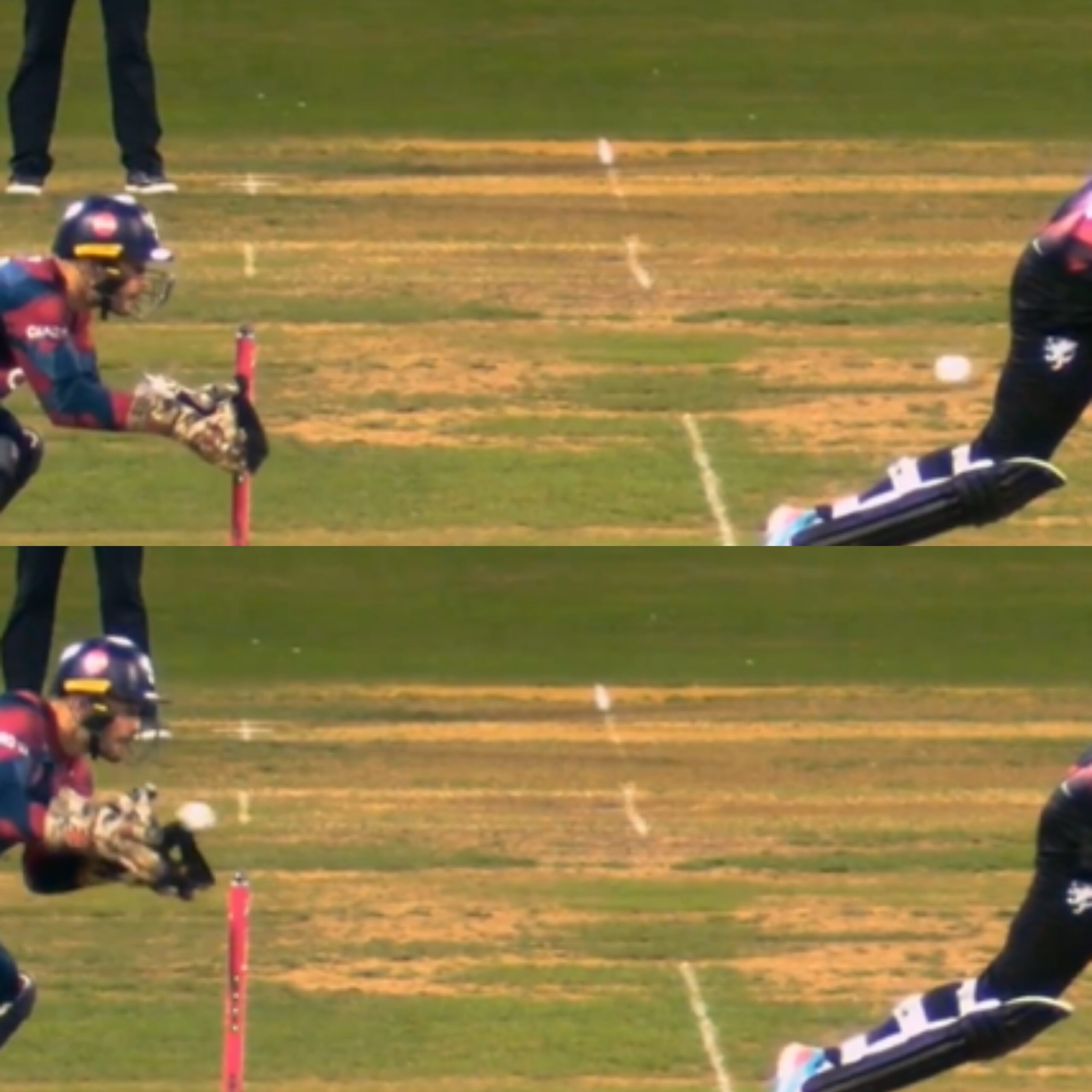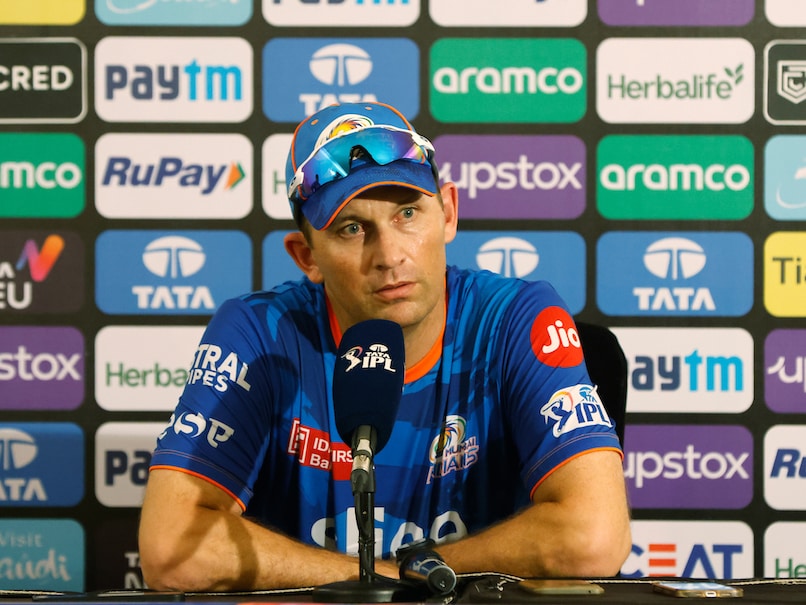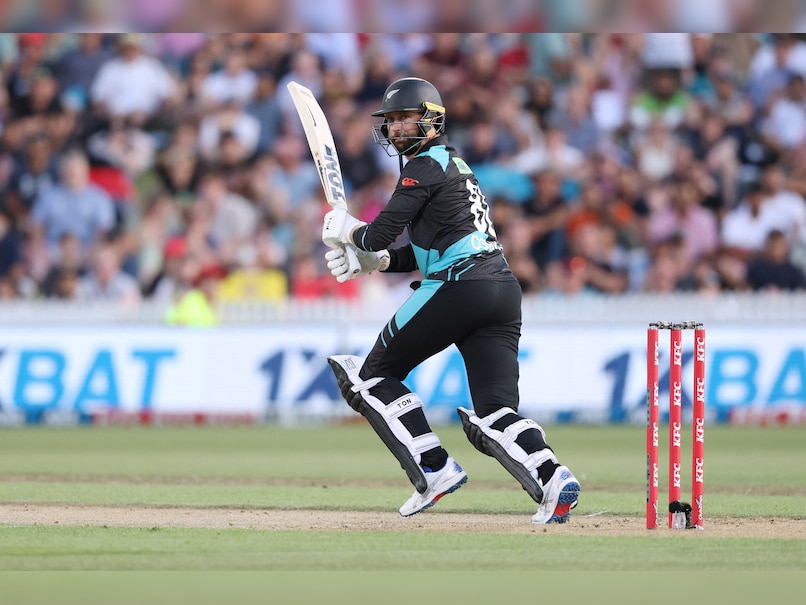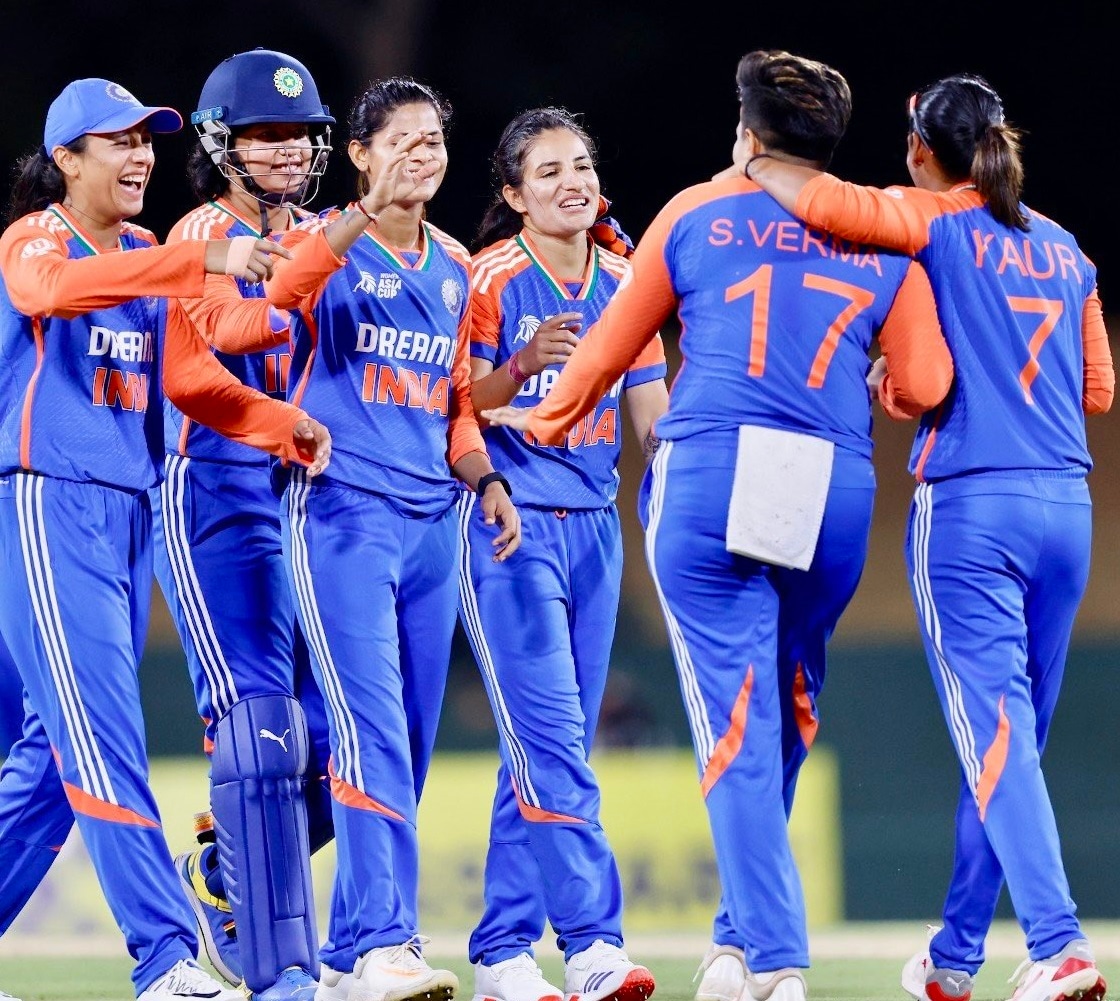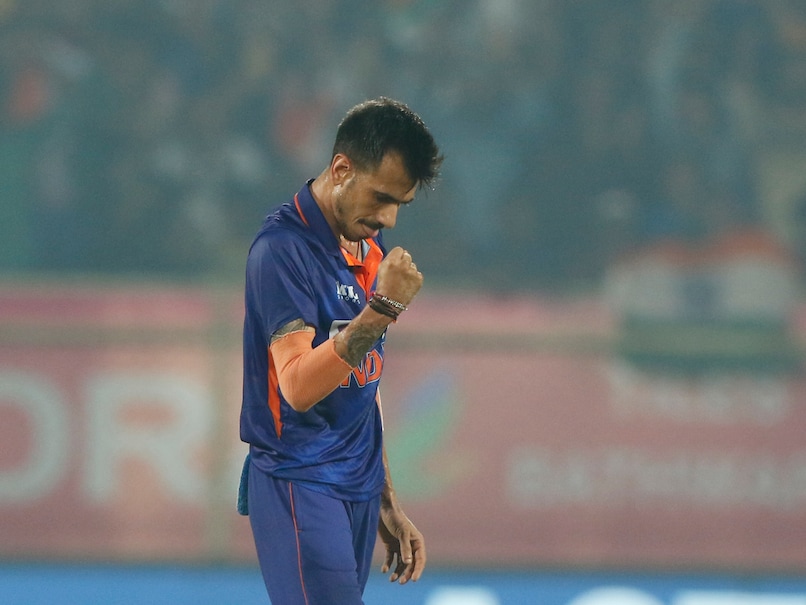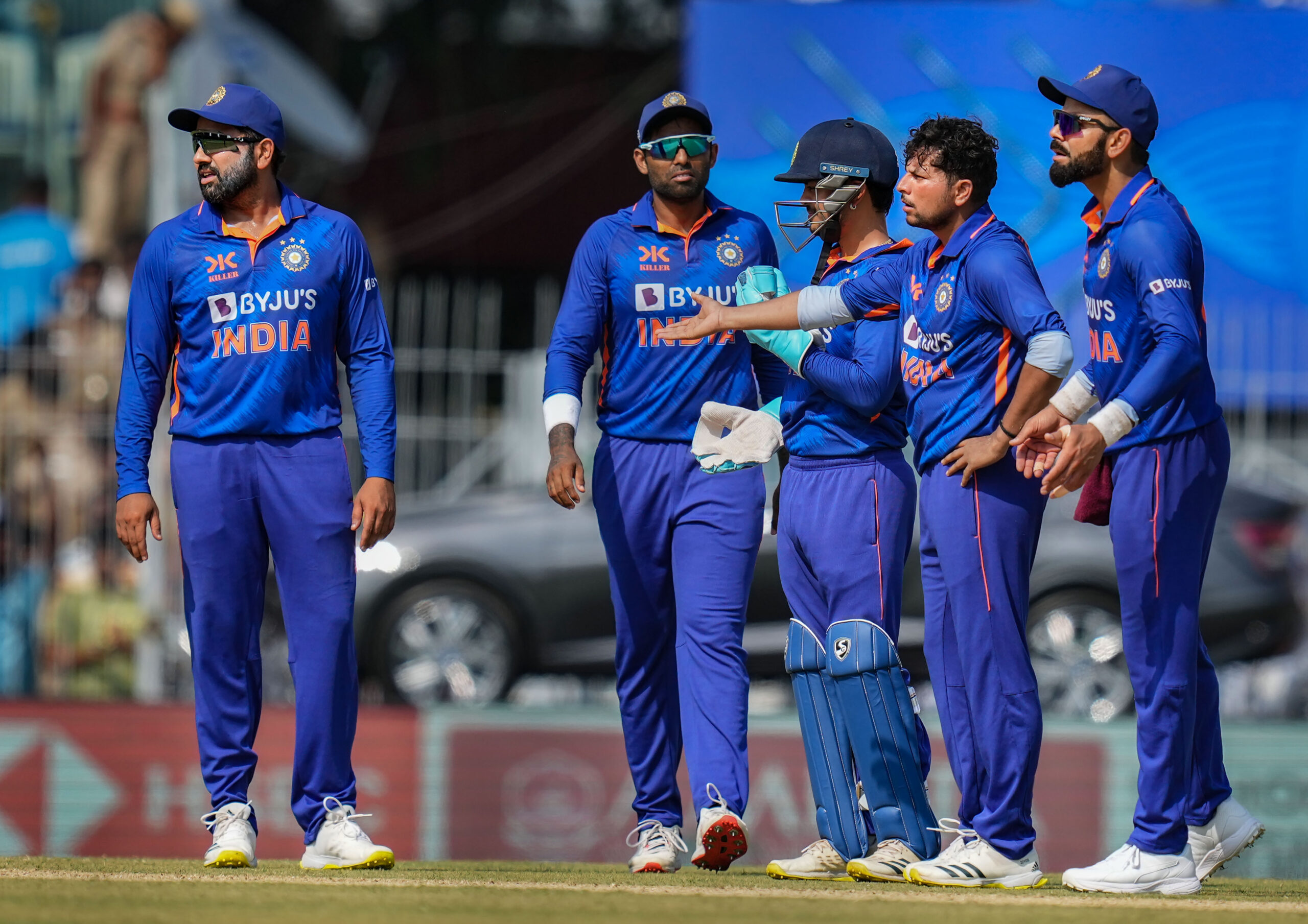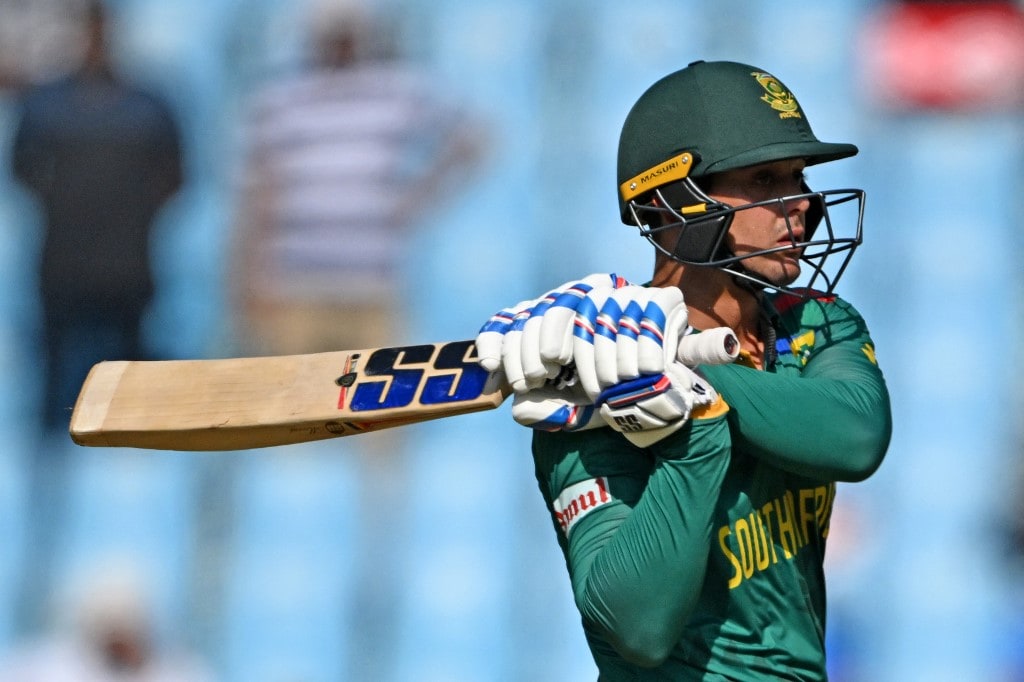A law that rarely comes into play in cricket is when a wicket-keeper batter claims or interferes with play by keeping his gloves ahead of the stumps. But that is exactly the sin that Northamptonshire wicket-keeper Lewis McManus made in a Vitality T20 Blast contest against Somerset. With Somerset’s Tom Kohler-Cadmore on strike, McManus had just appealed for a stumping. However, after replays showed that McManus’ gloves had just crossed the line of the stumps before he collected the ball, the third umpire decided to call it a no-ball altogether.
Although McManus had collected the ball well behind the stumps, his gloves had crossed the stumps before Kohler-Cadmore had played the ball. Although harsh, as per the laws of cricket, it is a clear no-ball.
Watch: Rare wicket-keeper no-ball
A very rare type of no ball pic.twitter.com/j5QYoDeihC
— Vitality Blast (@VitalityBlast) September 5, 2024
As per Law 27.3.1 and 27.3.2 set by the Marylebone Cricket Club (MCC), “The wicket-keeper shall remain wholly behind the wicket at the striker’s end from the moment the ball comes into play until a ball delivered by the bowler, either
a) touches the bat or person of the striker
b) passes the wicket at the striker’s end
c) the striker attempts a run.
“In the event of the wicket-keeper contravening this Law, the striker’s end umpire shall call and signal No ball as soon as applicable after the delivery of the ball.
As McManus’ gloves were ahead of the stumps before any of the three happened, the umpire rightfully awarded a no-ball. In fact, even after it was clear that the stumping wasn’t out, the third umpire called back the replay to double-check McManus’ glove movement.
The no-ball proved to be costly for Northamptonshire, as Kohler-Cadmore slammed the free-hit into the stands for six.
Kohler-Cadmore would end up scoring 63, as Somerset put up 215 in 20 overs. In response, Northamptonshire fell 17 runs short.
Topics mentioned in this article






